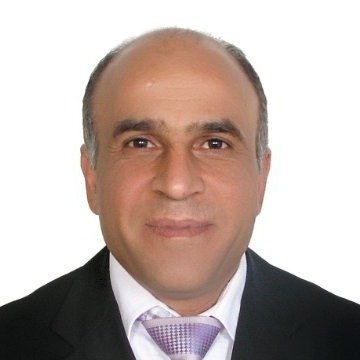Best Father's Rights Lawyers in Damascus
Share your needs with us, get contacted by law firms.
Free. Takes 2 min.
Free Guide to Hiring a Family Lawyer
List of the best lawyers in Damascus, Syria
About Father's Rights Law in Damascus, Syria
Father's Rights Law in Damascus, Syria is guided by a legal code based on Islamic law (Sharia). This system is nuanced and entails detailed regulation on family matters. A father generally has the right to custody of the children upon their reaching a certain age, with specific age guidelines differing based on gender. However, this is subject to the father meeting certain conditions such as being financially capable, mentally competent, and morally fit.
Why You May Need a Lawyer
Given the complexity and sensitivity of family law in Damascus, you might require a lawyer for several situations. These include seeking custody of your child, understanding and asserting your paternal rights or responsibilities, or resolving issues related to child support. A specialized lawyer can guide you through the legal intricacies and ensure that your rights and best interests are protected.
Local Laws Overview
In Damascus, the father's principal right is to be the guardian of their children, managing their affairs until they reach adulthood. This can include making final decisions about their education, healthcare, and religious upbringing. Furthermore, laws dictate that the father is the primary provider for the child, responsible for financial support, including housing, feeding, and education. Nonetheless, these rights come with obligations, and violations can lead to legal consequences.
Frequently Asked Questions
What are the custody laws for fathers in Damascus?
The mother typically gets physical custody of children until they reach a certain age (usually until 13 for boys and 15 for girls), after which the father is entitled to custody, provided specific conditions are met.
What happens if a father isn't providing financial support?
If a father refuses or is unable to provide the necessary financial support, legal action can be taken. In such cases, the father can be legally compelled to provide the necessary support to protect the child's welfare.
Do fathers have visitation rights if they do not hold custody?
Yes, the Syrian legal system recognizes the importance of maintaining a relationship between the child and both parents. Visitation schedules are usually established by the court, ensuring that the father has regular contact with the child, even if he does not hold custody.
Can grandmother or other family member of father claim custody?
In some cases, other family members, such as the paternal grandmother, may be granted custody if both parents are deemed unfit or in exceptional circumstances.
What happens in cases of disputes or breaches?
In the event of disputes or violations, such as denial of visitation rights or failure to provide financial support, you should seek legal advice immediately. Lawyers specialized in family law can recommend appropriate actions based on specific circumstances.
Additional Resources
You may find the Ministry of Justice in the Syrian Arab Republic or the local courts useful in acquiring further information about laws and legal processes. Various NGOs operate within the city, offer legal guidance, and support in family law matters. These include the Syrian Women's Legal Network and The National Coalition for Syrian Revolution and Opposition Forces.
Next Steps
If you believe that your rights as a father are not being respected, or if you need help navigating family law in Damascus, seek out a lawyer who specializes in family and Sharia law. It's crucial to ensure you choose an experienced, ethical, and competent legal professional to represent you. Remember, always keep the welfare of your child at the forefront when making important decisions.
Lawzana helps you find the best lawyers and law firms in Damascus through a curated and pre-screened list of qualified legal professionals. Our platform offers rankings and detailed profiles of attorneys and law firms, allowing you to compare based on practice areas, including Father's Rights, experience, and client feedback.
Each profile includes a description of the firm's areas of practice, client reviews, team members and partners, year of establishment, spoken languages, office locations, contact information, social media presence, and any published articles or resources. Most firms on our platform speak English and are experienced in both local and international legal matters.
Get a quote from top-rated law firms in Damascus, Syria — quickly, securely, and without unnecessary hassle.
Disclaimer:
The information provided on this page is for general informational purposes only and does not constitute legal advice. While we strive to ensure the accuracy and relevance of the content, legal information may change over time, and interpretations of the law can vary. You should always consult with a qualified legal professional for advice specific to your situation.
We disclaim all liability for actions taken or not taken based on the content of this page. If you believe any information is incorrect or outdated, please contact us, and we will review and update it where appropriate.








